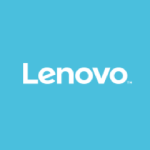Right now, we're using it as overflow storage. We initially had a VNX and an Isilon. We needed to grow out further, and we thought that Unity would be a good way to do that. Right now, we're using it a secondary storage platform, VVols across it, and using it directly for VMware storage.
The flash aspects of the Unity make it incredibly fast. The fact that you get that much storage directly on what is basically a 3U box to us, that density has been really useful.
We haven't gotten that deep into it yet to suggest improvements, but based on what we've been seeing here at the Dell EMC World 2018 conference, we'll be looking to make sure CloudIQ is set up for it.
Less than one year.
We haven't seen an issue with it since the day we installed. It has been only two months but it's good.
We really enjoy the scalability, absolutely. We're running one box right now, but the fact that we can add additional compartments as needed is extremely useful, and we will probably go that way in the future.
We've had to use very little tech support, but so far it has been fine. Mostly we had some assistance with it during setup and haven't needed it since. When we needed them they were there for us, helpful, on schedule.
We've been using Isilon and VNX. We heard about Unity here, at the conference, two years ago, and had started to look into it. Obviously, as flash has continued to get cheaper compared to spinning disk, it makes a natural choice.
When selecting a vendor, responsiveness and accountability are incredibly useful. A really important part was the support we got out of EMC for Isilon. Often, we'll hear from them that disks are ready to be replaced. They're getting to us, setting their pace, getting out there without much interference from us.
In terms of price, I would say that the support you're getting with it is probably an underestimated value that comes with the box you're buying.
I would tell a colleague this makes a very sound investment. It's very reasonable density for space. The extendability is extremely useful. It's hard to choose a competitor at that level that would do it better.











